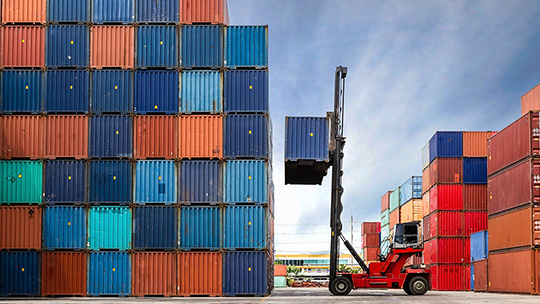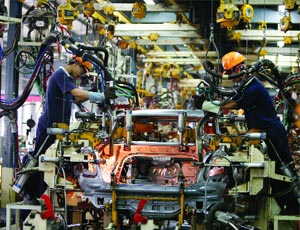Vietnam Considers Strengthening Local Auto Industry
HANOI – Vietnam has pledged to soldier on with its developing auto industry despite an increasingly competitive market. This increase in competiveness is due to free trade agreements, such as the ASEAN Trade in Goods Agreement, which will be implemented in 2018 and which will allow cars to be imported duty-free from ASEAN countries.
Vietnam is quickly becoming a prime market for the automobile industry. The country has a fast growing middle class, with rising wages and a desire to move beyond the more common forms of transportation such as motorbikes. As with other places in Asia, ownership of a car works as a status multiplier.
 RELATED: Dezan Shira & Associates’ Global Services
RELATED: Dezan Shira & Associates’ Global Services
Building an engine for growth
According to Dr. Duong Dinh Giam, chief of Vietnam’s Industrial Policy and Strategy Institute, the country will go through a period of “automobilization” once annual per capita income rises above US$3,000. Vietnam will soon reach this tipping point – incomes are seeing strong growth year over year. According to the IMF, during 2013, per capita income was US$1,901.
One of the key reasons as to why Vietnam wishes to keep its local auto industry going is because, if the country relies solely upon imports, the foreign exchange balance will be affected negatively. Additionally, the auto industry has the potential to create thousands of jobs for locals and create a strong system of supporting industries.
Dr. Giam has been advising Vietnam on how to create a line of competitive products and has recommended that the country’s industry focus on personal cars, trucks and small buses with engines smaller than 1.5 liters, as demand for these types of vehicles is already high in Vietnam.
Among the other recommendations Dr. Giam urged were:
- To support consumers by reducing assorted fees;
- Lowering the special consumption tax from the current 45 percent to 5-10 percent on small engine cars;
- The government should not start reducing import tariffs until 2017;
- In 2017, tariffs should be adjusted to 30 percent from the current 50 percent, and be brought down to zero the following year; and
- Technical barriers should be applied to imported cars to protect Vietnamese consumers.
Speaking of the proposed tax incentives, Dr. Giam explained that these will lower car prices by VND25-50 million (US$1,175-2,350). An additional competitive advantage for locally made cars will be that they are not subject to import duties and overseas shipping fees.
RELATED: Establishing a Manufacturing Presence in Vietnam
Many foreign auto manufacturers, such as Honda, Toyota, Ford and GM, have pledged to increase the amount of cars that they produce locally, however this has been a slow process and the foreign companies have been somewhat reluctant to move forward – the government will have to work harder to urge these companies to increase their localization rates. Dr. Giam’s solution: a fund that will provide direct assistance to automotive manufacturers wherein the level of assistance will depend on the business’ ability to meet government objectives.
Time to hit the brakes?
However, other government officials are not so sanguine about Vietnam’s chances to develop a fully-fledged local auto industry. Pham Dinh Thi, deputy chief of the Ministry of Finance’s Tax Policy Department, has stated that Vietnam should focus on a few key areas of the assembly line since attempting to create a complete auto industry remains a “pipe dream” for now.
Vietnam has much catching up to do when it is compared to neighboring countries such as Thailand and Indonesia, who have much more fully developed auto industries. One of the key weaknesses of Vietnam is that its supporting industries are very weak – if no effort is made to improve this area, foreign auto companies which have already entered the country will start to look to other countries to locate their operations in.
Asia Briefing Ltd. is a subsidiary of Dezan Shira & Associates. Dezan Shira is a specialist foreign direct investment practice, providing corporate establishment, business advisory, tax advisory and compliance, accounting, payroll, due diligence and financial review services to multinationals investing in China, Hong Kong, India, Vietnam, Singapore and the rest of ASEAN. For further information, please email vietnam@dezshira.com or visit www.dezshira.com.
Stay up to date with the latest business and investment trends in Asia by subscribing to our complimentary update service featuring news, commentary and regulatory insight.
Related Reading
 Developing Your Sourcing Strategy for Vietnam
Developing Your Sourcing Strategy for Vietnam
In this issue of Vietnam Briefing Magazine, we outline the various sourcing models available for foreign investors – representative offices, service companies and trading companies – and discuss how to decide which structure best suits the sourcing needs of your business.
 An Introduction to Doing Business in Vietnam 2014 (Second Edition)
An Introduction to Doing Business in Vietnam 2014 (Second Edition)
An Introduction to Doing Business in Vietnam 2014 (Second Edition) provides readers with an overview of the fundamentals of investing and conducting business in Vietnam. Compiled by Dezan Shira & Associates, a specialist foreign direct investment practice, this guide explains the basics of company establishment, annual compliance, taxation, human resources, payroll, and social insurance in the country.
Draft Amendment to Vietnam’s Investment Law Seeks to Improve Business Environment
Foreign Investment Needed for Infrastructure and Agriculture Projects in Vietnam
Vietnam TPP Update: Edging Closer to Completion
- Previous Article Vietnam Textile Industry Issues Plan for 2020 and Beyond
- Next Article Vietnam Plastics Industry to See Strong Growth
























 By
By 







